I was approaching the last turn of the race. I had more miles behind me than I had in front of me. But the excitement of finishing my eighth marathon was dulled as I approached a slight hill to get to mile 26 and the finish. At mile 1, I would have bounced up the incline with ease. But now, thousands of steps later, I could feel my body resisting as I tried to push forward. My quads were screaming, my feet ached, and the heat was taking its toll.
It would not take physical strength to cross the line and receive my medal. For the last two-tenths of the race, I would have to flex my mental toughness.
Mental toughness is our ability to stay calm, focused, and motivated in difficult situations. As athletes, we need to be able to control our emotions and dig deep to accomplish our goals, even when we are outside our comfort zone.
Athletes often focus on sport specific training — endurance, power, and strength. Hill sprints, steady-state swims, box jumps. We want to challenge our bodies so that we can adapt and grow.
However, we need our minds to adapt to discomfort, too. Sports psychologist Christiana Bédard-Thom suggests that you need to put yourself in stressful situations so that you can handle the stress during a competition.
But how can athletes build mental toughness?
There are many ways of building up your mental strength: meditation, exercise, and practice positive self-talk. Practices such as cold water immersion, too, can help athletes manage stress, anxiety, and unexpected situations.

Why mental toughness is important for athletes
The marathon was no longer a bucket list item for me. Signing up for a race was a way for me to continue to challenge myself and test my fitness on a different course. Some races, my goal was to set a personal record. Others, it was about recommitting to my fitness or just doing something I loved.
Athletes can be driven by myriad factors. It might be a way to test their limits or a desire for self-improvement. A passion for sport and movement can also motivate a person to continue training.
But while physical training and gym sessions are essential to success, developing mental resilience is equally important for achieving peak performance.
Resilience
You miss an aid station at the critical point of a marathon. You scrape your shin while doing box jumps at a CrossFit competition. The front tire of your bike goes flat as you are trying to power up a hill.
Setbacks happen. But how you handle them in the moment and bounce back is the sign of your mental strength.
Athletes who are mentally tough are able to prevent negative emotions or a loss of focus deter them from their goals. Being intentional to sharpen your mental toughness can build your resilience and ability to handle high pressure situations.
Performance under pressure
Sports often involve high-pressure situations, such as critical game moments or intense competitions. And the expectations to do well can weigh on you — whether it’s an internal drive to win or external pressure.
The pressure to perform can help motivate you when you need it. However, it can also lead to struggles and anxiety.
A study of 43 tennis players showed that mental toughness might contribute to successful performance during a tennis match, which is often a high-pressure competition.
Taking time to train your mental strength can help you further improve your ability to perform under pressure. You will be able to maintain better focus and concentrate on the event, while disassociating from the pressure.
Improved self-confidence
Whether you are standing on the starting line or warming up on the competition floor, you might find yourself wondering how the day will play out. Will you complete the event? Will you reach your goals?
But the answer to those questions might not lie in your training logs. Whether you perform your best can come down to confidence.
Research has shown that self-confidence plays a critical role in sports performance. “Self confident athletes use psychological skills such as mastering fear, goal setting, and more often than their less confident peers. Self confident athletes are mentally tough and also they find that exercise challenging and enjoyable.” [source]
Focusing on building your mental toughness will help you further build your self confidence. It enables you to trust in your abilities and know that you can go beyond your limits.

5 ways to build mental toughness
Just as you prioritize your workouts, nutrition, and even sleep, you should also commit to building your mental toughness.
There are myriad strategies to employ that can help you build resilience. From goal setting to cold plunging, these methods can give you the competitive edge you are seeking and help you thrive under pressure.
Set SMART goals
Among the strategies that athletes can use to build mental strength is goal setting. A report in Frontiers of Psychology examined how paralympic athletes develop mental toughness. In addition to their experiences, goal setting was an important step in helping one persevere. Developing action plans and consistently tracking progress provides a roadmap for success, instilling mental resilience along the journey.
It’s important to identify both short-term and long-term objectives, ensuring they are specific, measurable, achievable, relevant, and time-bound. Otherwise known as SMART goals.
These SMART goals provide a metric for measuring your progress and evaluating your performance. Regularly reviewing your progress can boost your confidence, provide a sense of accomplishment, and reinforce your mental toughness. It allows you to reflect on your journey, identify areas for improvement, and adjust your training accordingly.
Embrace positive self-talk
As I approached the last hill of the marathon, I just had to look beyond the incline and to the point where it would crest. I had to see myself having completed the hill, feeling strong for the last stretch.
Visualization and positive self-talk are a powerful way to work on your mental toughness. Positive self-talk involves using optimistic and encouraging language to motivate yourself, even in challenging situations. It might be as simple as repeating “I am strong” while you are lifting weights. You can remind yourself that, yes, you can do this as you wait for an event to begin.
Self-affirming like "I am determined" or "I am capable" can reinforce your commitment and drive towards your goals. By using phrases such as "I can improve" or "I will keep trying," you embrace challenges and setbacks as opportunities for growth.
But it’s also important to recognize when you are not using positive self-talk and learning how to reframe it. Instead of saying, “I’m so slow. I’m never going to get a personal best,” try saying, “I have room to get better, and I can only train to the best of my ability.”
Incorporating positive self-talk into your daily training routine will help you focus on growth and improve your resilience. As a result, you will feel stronger and better prepared when setbacks present themselves.
Take the cold water immersion plunge
As an athlete, you might have incorporated an ice bath or other form of cold therapy for the physical benefits. Cold water immersion can reduce inflammation, speed recovery, and help you improve circulation.
But plunging into a tub of chilly water can also help you develop your mental strength. Afterall, getting into 40-degree water is an uncomfortable and challenging experience. Cold water can help you embrace discomfort and persevere through difficult circumstances. It also reinforces mental resilience by enabling athletes to draw on their inner strength and remain focused, composed, and determined when faced with adversity.
But what if just filling your tub with bag after bag of ice tests your mental fortitude?
With the Michael Phelps Chilly GOAT Cold Tub, you can enjoy clean, clear, cold water — whenever you need it. The cold tub has an energy-efficient chiller, which keeps the water at your preferred temperature. You can set it between 40 degrees and 60 degrees for cold water therapy. The soaking area is generous, too, so you can submerge yourself in the full benefits of cold plunges.
Practice mindfulness and meditation
As an athlete, you might be trying to get in the zone. You want to find a flow state. And it’s that zen-like feeling that can help you disassociate from the discomfort of a physical activity and help you get through it.
But being present can help you get stronger mentally and improve your performance.
A mindfulness practice involves intentionally paying attention to your thoughts, feelings, and environment. The catch? You do so without judging how you feel or becoming overwhelmed.
Rooted in ancient meditation practices, mindfulness has been shown to not only improve your mental well-being but sports performance. Mindfulness practices can help you stay focused and calm in a stressful situation. It can reduce anxiety and help with recovery.
Journaling, yoga, or using an app for guided meditations can help athletes cultivate mindfulness.
Implement breathing techniques
You have to breathe. Whether you are doing your warm-up or just recovering, breath is essential to sport. And, obviously, life.
But strategic breathing exercises can help you ease pre-race nerves, regulate heart rate, and focus when the pressure starts to build.
For example, diaphragmatic breathing has been shown to help increase the feeling of relaxation among athletes. The 2018 study reported that this breathing exercise also enhanced coordination, concentration, focus, and decision-making skills.
The 4-7-8 breathing technique is a simple and effective relaxation exercise that can help reduce stress and promote calmness. Here's how you can practice it:
- Find a comfortable sitting position or lie down flat on your back.
- Close your eyes and take a few deep breaths to relax your body.
- Relax your jaw and place the tip of your tongue just behind your upper front teeth, keeping it there throughout the exercise.
- Breathe out completely through your mouth, making a whooshing sound.
- Close your mouth and inhale quietly through your nose to a mental count of four.
- Hold your breath for a count of seven.
- Exhale completely through your mouth to a count of eight, making a whooshing sound.
- This completes one breath. Now, inhale again, and repeat the cycle for a total of four breaths.
While it’s just breathing, it can help you build the mental toughness you want as an athlete.
The benefits of mental toughness will extend far beyond the track or the gym. From increased resilience and focus to improved decision-making, these skills will help you not only manage your day-to-day life but grow and succeed.

Embrace the benefits of cold tub therapy
Do you want to enjoy the benefits of cold water therapy without buying bag after bag of ice? Having a Michael Phelps Chilly GOAT Cold Tub allows you to realize the impact of cold water. Enjoy clean, clear, cold water on demand. You can click here to find out more about the benefits of incorporating a Michael Phelps Chilly GOAT cold tub into your routine.
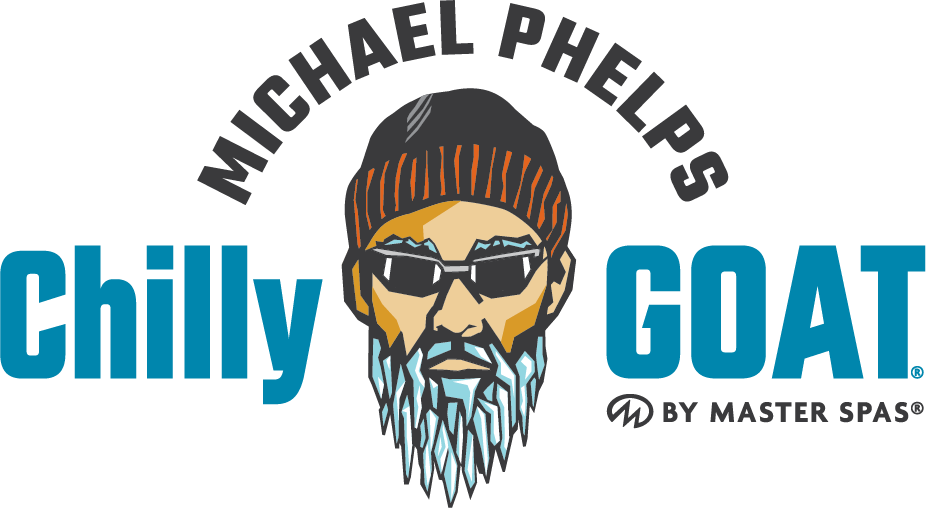

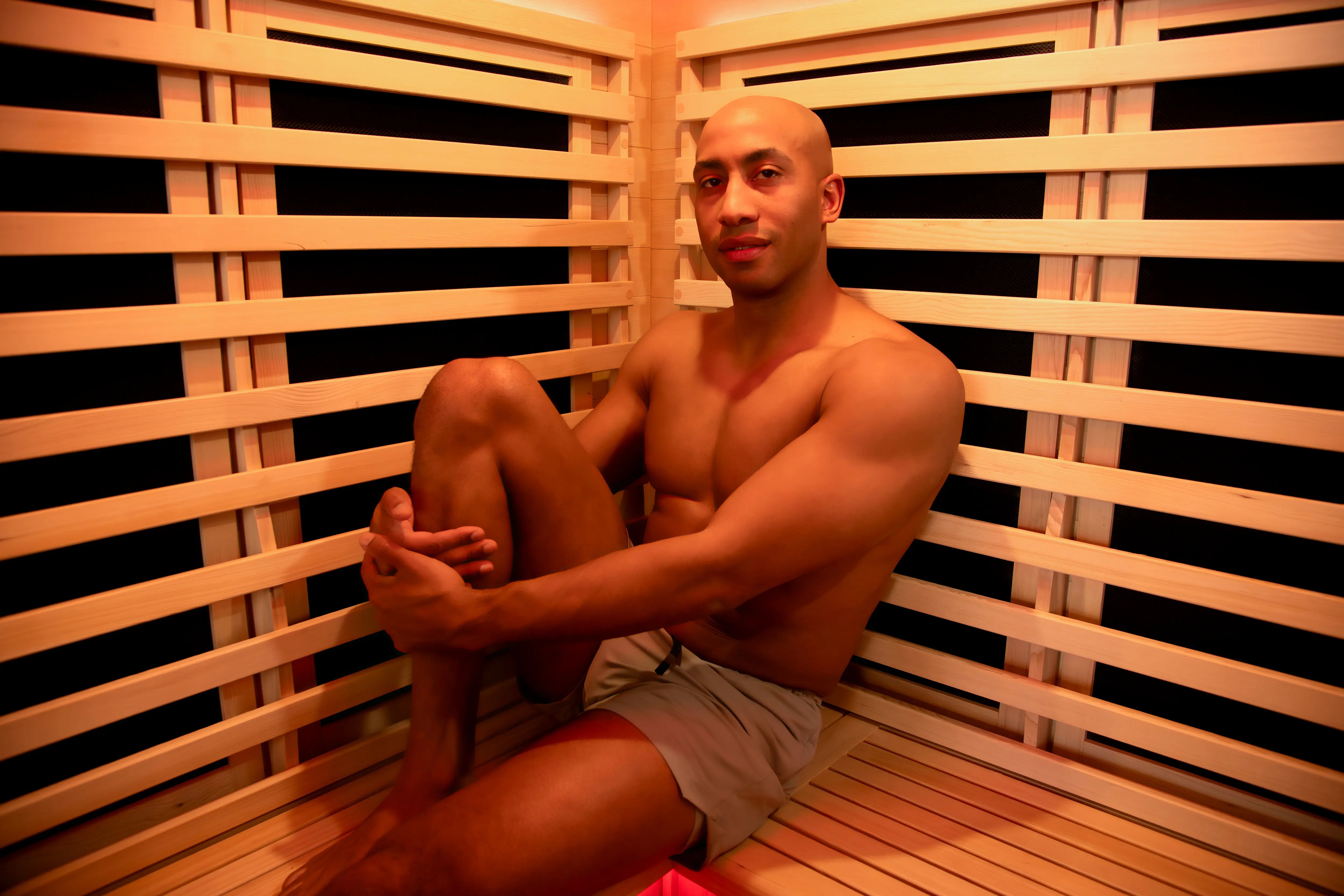
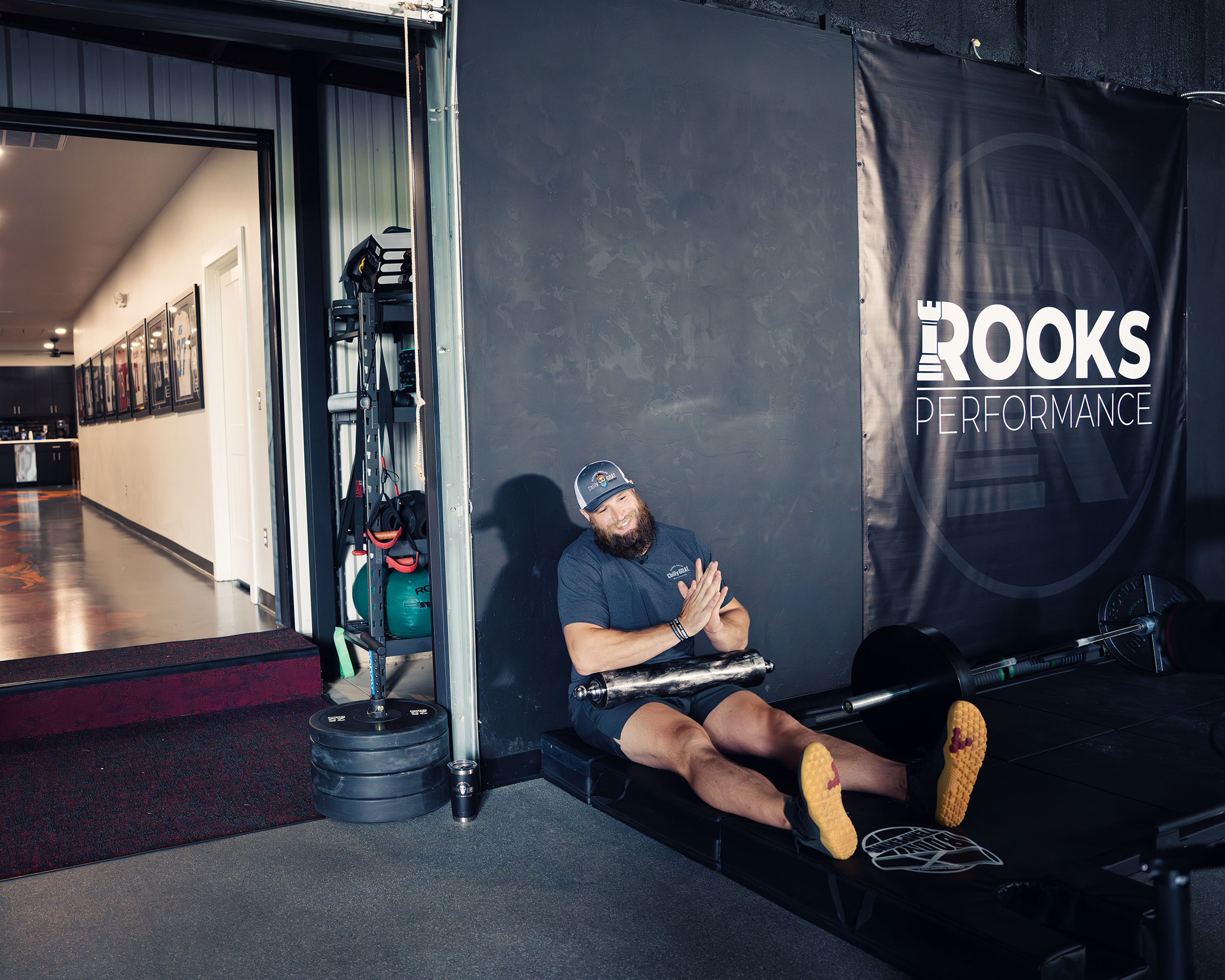
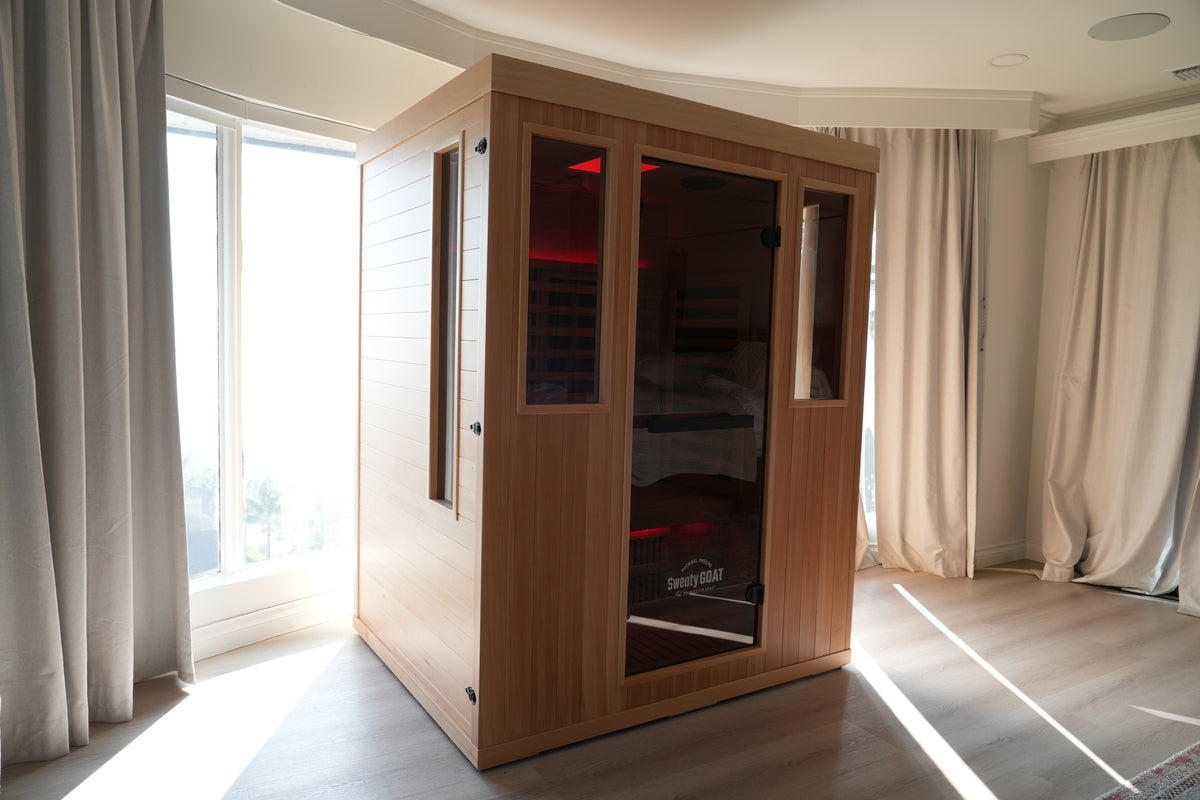
Now departing your comfort zone
Best ways to energize your morning routine